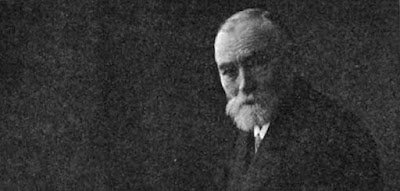I recently set out some of my basic beliefs and assumptions about what there is and about what makes a person.
"Biology and culture. Culture and biology. That’s not all there is, but – with the inorganic world within which biological organisms evolved and within which they exist – that’s enough to make a human being..."
And, in a recent podcast, I talked about Gottlob Frege's beliefs and assumptions about life and language, views which I endorse to a large extent. Frege saw human thought and language in fundamentally organic and holistic terms.
I am adding here a few general thoughts on culture and language. My sense is that these various fragments are compatible with one another and form (potentially at least) a more-or-less coherent whole.
Language is probably the most basic cultural element for two reasons: it bridges biology and culture in ways that other cultural elements do not; and it is the foundation or at least a sine qua non for the development of many other cultural forms and practices, from religion and politics to mathematics.
Culture is undoubtedly real but a culture is impossible to define in a precise way. The same applies to language and languages. Just as each of us deploys a unique linguistic system (idiolect) which is different in various ways – scope and details of lexicon, aspects of syntax, pronunciation, etc. – from the linguistic systems deployed by others within our language group, so each of us embodies a unique cultural mix.
This idea obviously relates to the idea of individualism and, I think, justifies taking individualism seriously as a potential way of dealing with social problems related to various kinds of identity politics and stereotyping.
Degrees of overlap vary between individuals but, because cultural elements are so diverse, there is no single measure of commonality. Some cultural elements are easily isolated and compared but most are not.
Take language. Though the idiolect notion is (in my opinion) central to any truly scientific approach to language, for practical purposes it is useful – necessary in fact – to distinguish between languages or dialects. This inevitably involves abstraction and simplification – but then so does most of our ordinary, day-to-day thinking.
Religion is another fairly clearly identifiable cultural element, at least in the sense that the churches and sects and religious movements of the modern world can be defined and demarcated in both social and doctrinal terms. Complications arise, however, when you start to look at how participating individuals envisage and justify their participation. Congregations may be gathered together physically, but each individual will have a unique perspective on what they are doing and why.
I am conceding that identifying and drawing cultural distinctions within certain defined areas is not only possible but inevitable and necessary. But defining and drawing these distinctions is difficult to do in a rigorous way. And, if one is talking about a culture in a general sense, that task becomes well-nigh impossible.
The notion of a national culture is particularly problematic. Where there can be said to be such a thing, it is of necessity imposed and artificial – in contrast to regional cultures, for example, which are shaped over long periods of time by local conditions and practices.
Generally, it makes more sense to talk of national myths and ideologies rather than national cultures, I think. Perhaps if one is looking at a fully-fledged totalitarian state in which the natural course of cultural history has been totally blocked or perverted by a central authority, leaving the population with no other culture than that which has been imposed upon them by their ideologically-driven overlords, you could talk about a national culture. But, even in such cases, pockets of resistance will inevitably arise, complicating the picture.
Ideology and political myth, I am saying, need to be distinguished from (and are always in tension with) the more spontaneous and organic forms of thought and action which derive from the activities of small groups, families and individuals pursuing their personal goals.
